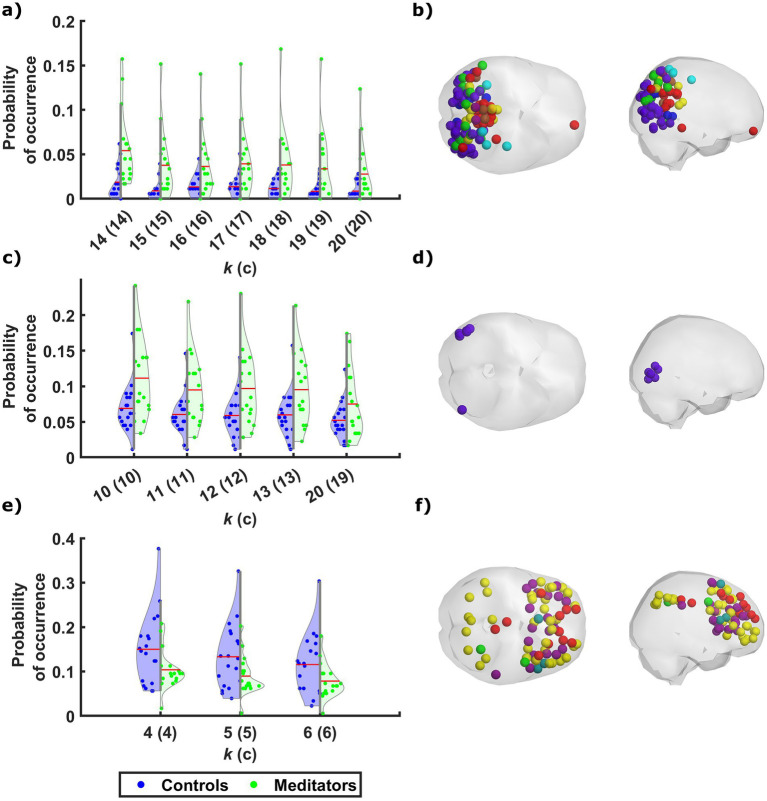
By John M. de Castro, Ph.D.
In today’s Research News article “Long-term mindfulness meditation increases occurrence of sensory and attention brain states” (See summary below or view the full text of the study at: https://pmc.ncbi.nlm.nih.gov/articles/PMC11743700/ ) Panitz and colleagues examined the activity of brain systems in experienced mindfulness meditators in comparison to non-meditators and found that experienced meditators had greater activity in brain systems associated with sensory processing and lower activity in systems associated with cognitive processing, This suggests that mindfulness meditation practice alters brain activity to accentuate immediate sensations.
Mindfulness meditation increases brain sensory processing while decreasing brain cognitive processing.
CMCS – Center for Mindfulness and Contemplative Studies
This and other Contemplative Studies posts are also available on the Contemplative Studies Blog http://contemplative-studies.org
Study Summary
Panitz DY, Mendelsohn A, Cabral J, Berkovich-Ohana A. Long-term mindfulness meditation increases occurrence of sensory and attention brain states. Front Hum Neurosci. 2025 Jan 6;18:1482353. doi: 10.3389/fnhum.2024.1482353. PMID: 39834400; PMCID: PMC11743700.
Abstract
Interest has been growing in the use of mindfulness meditation (MM) as a therapeutic practice, as accumulating evidence highlights its potential to effectively address a range of mental conditions. While many fMRI studies focused on neural activation and functional connectivity during meditation, the impact of long-term MM practice on spontaneous brain activity, and on the expression of resting state networks over time, remains unclear. Here, intrinsic functional network dynamics were compared between experienced meditators and meditation-naïve participants during rest. Our analysis revealed that meditators tend to spend more time in two brain states that involve synchrony among cortical regions associated with sensory perception. Conversely, a brain state involving frontal areas associated with higher cognitive functions was detected less frequently in experienced meditators. These findings suggest that, by shifting attention toward enhanced sensory and embodied processing, MM effectively modulates the expression of functional network states at rest. These results support the suggested lasting effect of long-term MM on the modulation of resting-state networks, reinforcing its therapeutic potential for disorders characterized by imbalanced network dynamics. Moreover, this study reinforces the utility of analytic approaches from dynamical systems theory to extend current knowledge regarding brain activity and evaluate its response to interventions.